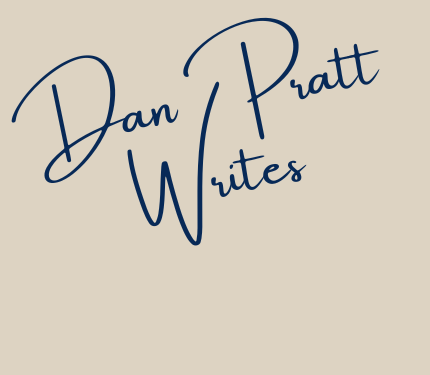8 Ways To Stop Procrastinating
Whether you call it writer’s block or procrastination, sitting down to write is the first challenge to becoming a writer. You have to do it consistently and for a good amount of time. But how do you overcome the urge to procrastinate? Here are some ways you can help fight, and win, the battle with procrastination.
Procrastination can hit anyone, at any time, but as writers, we tend to suffer more than others. This is also known as “Writer’s Block”. I struggle with procrastination occasionally, but over the years I have found ways to help manage it.
If you find it hard to sit down and write for a solid amount of time without getting distracted or finding other things that ‘need’ doing, then hopefully you will find these tactics helpful.
1. Tidy Your Desk
People often say that creative people have messy spaces as it suits how their brains work. Mark Twain, Thomas Edison, Albert Einstein, and Steve Jobs are all famous people who supposedly worked at a messy desk.
There is something to having your own form of organised mess that suits your style. My notebooks are a mess of scribbled ideas, questions and things to look up which I ruthlessly scribbled out or ripped off when I don’t need them anymore as this is how my mind works, and in some ways, how my writing works.
However, a messy desk is an easy way to make yourself distracted while you are working. Keeping your desk or workspace tidy will help keep you focused and should cut down on your mind wandering while you are writing.
The same can be said for your computer, keep your tabs or bookmarks ordered. Remove icons from your home screen. It might even be worth considering having a dedicated writing browser to stop you from opening up YouTube while you are working.
Now this isn’t to say you should adopt a certain way of organising your desk because you read it in an article. Experiment and find what works for you. I won’t be changing my notebook habits anytime soon, but I did find getting a drawer for my desk to store them in helped me from getting distracted while writing.
2. Block Out Some Time
The thing that revolutionised my writing was organising my day and blocking out a set amount of time to write. Every day, from 7 pm to 9 pm, I sit down at my laptop and write for 2 hours. What I am working on can change. It might be this week’s Microfiction story, or a competition submission or it might be a blog article like this one. But I write for two hours, and when those two hours are up, I stop.
This helps in two ways, firstly, I never have to worry about ‘finding time’ for my writing, something that was always difficult in the past. Secondly, it takes a lot of pressure out of writing.
By this, I mean I used to find the open-endedness of writing intimidating. When did it end? Now, I know it ends in two hours. And because I am doing this every day I know I will be able to come back and finish whatever I am working on, so there isn’t as much pressure on what I am working on.
Again, you should experiment and find what works for you. Maybe more frequent, shorter writing sessions would suit you. Or maybe you prefer to write in the morning. But, however you like to write, creating an agreed amount of time to write, and sticking to it, will do wonders for your writing.
3. Use A Timer
This one is linked to the above. To aid you in your committing to a writing time, try using a timer to manage your time. This works pretty well with the Pomodoro technique.
The idea behind this technique is to boost your productivity by committing to short work sessions with small breaks in between. For example, write for 25 minutes and then take a 5-minute break. Repeat this three times before stopping for a longer break of 15 to 30 minutes.
I must admit this isn’t something I often use. I normally just sit down for two hours and write in a hyper-focused way. But I do use the timer to let me know when the two hours are up, otherwise, I would be writing until 2 am without a bathroom break.
But the Pomodoro technique is supposed to be very effective, so I would definitely recommend trying it. You don’t have to commit to the full session, do just two 25-minute sessions with a break in between. Again, find what works for you.
There are plenty of apps that can help with this. Or, just use the timer feature on your phone. If you are feeling extra fancy and want to create an Instagramable desk, get a sandglass.
4. Make Writing A Habit
Like most things, writing gets easier the more you do it. Making writing a habit is the other way that I really boosted my productivity. Like I said, I write every day, from 7 pm to 9 pm. Although I’m not tyrannical with this, and will sometimes skip a Friday or Saturday night if I have plans, I strive for consistency.
As I said above, I don’t always work on the same thing each night. But I always write. I save research or editing for other times. For those two hours, I just write. Sometimes I write a lot, sometimes not very much at all. But by making writing a habit I very rarely feel anxiety about sitting down to write.
And in addition to this, I rarely get distracted during that time because I’m in the habit of writing for those two hours.
5. Research & Format Later
A meme I often see making its way across the writing community is some kind of joke about spending hours researching the specifics of something at the expense of writing. And while I know this is a joke (to some extent) I think it provides a good point to prevent you from getting distracted while writing and keeping you productive.
Keep your research and formatting for later.
You’re writing a historical romance novel and want to know what kind of sword your hero would use. Who cares? You can find out later. Make a note in the footnotes to come back rather than spending two hours researching mediaeval swords and losing all focus.
You have realised that you need a character to have a certain item or experience to get out of a situation so now you need to go back and add that to what you have already written. It can wait. Make a note, and keep going.
The journal you are submitting to wants a certain font that you haven’t used. You guessed it, wait until you are finished.
Whatever comes up as you go, it can wait. Just keep writing. Editing, research and formatting can all wait until later. Don’t get distracted.
6. Make Writing Fun
If you are often getting distracted or procrastinating while writing it might be because you aren’t finding writing very enjoyable. And that is okay. We all love writing, but many writers also hate writing. I think this quote by Dorothy Parker sums it up nicely, “I hate writing, I love having written.”
Try to make your work more interesting and fun to help keep you engaged. Listen to some music if that helps. Find a way to reward the work when you are done. Add some joviality to the process. I find adding these little anecdotes to these articles as I write them makes it far more enjoyable.
7. Find A Way To Win
Nothing makes a task more enjoyable than winning. Everyone loves to win things. A great way to make writing fun and to keep you dedicated is to find a way to ‘win’ at writing. How you do this will depend on you and what motivates you.
Personally, I love hitting submit on a submission, publishing that article I just wrote or sharing my latest short story on Instagram. Completing the task is how I win at writing. It is a big part of what keeps me focused and distraction-free while writing.
Maybe you are more motivated by a threat. Agree to some public ridicule if you don’t meet a deadline. Or make a bet with a friend. Find what would motivate you to keep you working. Or, work to prove someone wrong. Spite is a great, if not very healthy, motivator.
Another way to win is to actually win. Writing competitions and submissions to lit mags are a great way to give your writing some structure and direction with a chance of actually winning something at the end. My writing really took off once I started entering one or two competitions a month.
8. Get Rid Of The Pressure
The final tactic to keep yourself distraction-free is to remove the pressure from writing. As a new writer, I was paralysed at times by writing. What should I write? Do I do a novel or short stories? Which competition do I enter? How many words do I need to write a day? How much time should I spend writing? Etc.
Don’t get me wrong, these questions so occasionally still pop into my mind and they have the same impact they always did, usually by making me freeze up before I reached for my phone and a desperately needed distraction.
The best way to start writing consistently and without distraction is to relax about it. Write anything. Some of the short stories I have published on my Instagram recently included an alien who liked to wear hats, an evil toaster and a dramatised version of myself accidentally summoning a daemon in Latin class.
None of these stories really mattered and I would start and finish them in one of my two-hour sessions. What mattered was I was writing freely and consistently, using fun and silly prompts to have fun with writing in a no pressure environment.
And then when it was time to work on a 3,000 word short story for a writing competition, I found it much easier to start. Coming up with a story was easier because I had already come up with dozens already. I had time to write and was used to doing it.
If you only take one thing away from this article, let it be this. Relax, take away the pressure and enjoy writing. If you want to be a writer you are going to spend thousands of hours writing, so enjoying it will help you stay productive and distraction free.

Dan Pratt Writes
Aspiring Writer & Author. Read my Short Stories & Microfiction, Creative Writing Blog, Lit Mag Roundup and List of Short Story Competitions.
